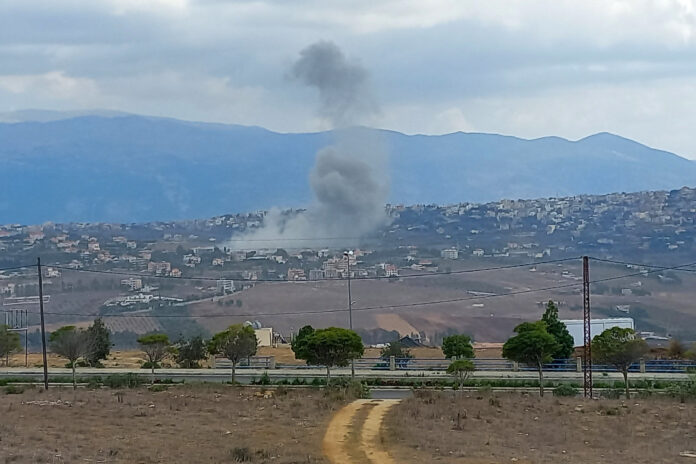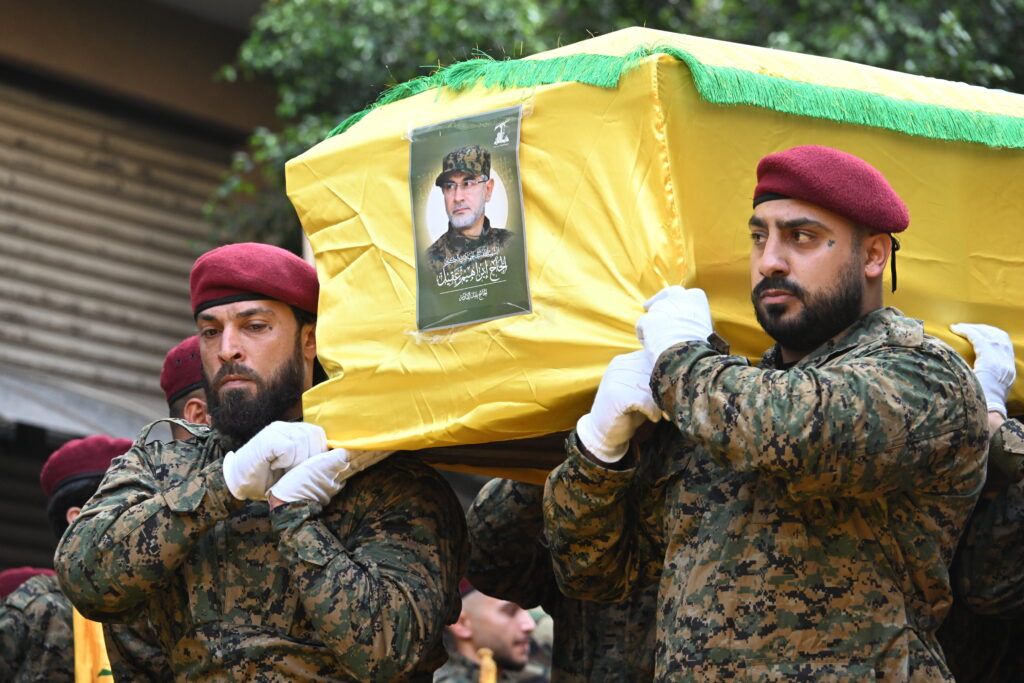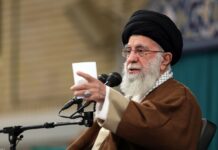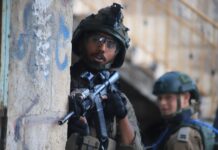
At least 550 people were killed and thousands others injured in intensive Israeli airstrikes targeting several areas in Lebanon since this morning, according to the country’s Health Ministry.
Children, women and medics were among the victims, the ministry added in a statement, without giving an exact figure.
Hezbollah also issued a statement saying it targeted two Israeli bases in retaliation for Israel’s attacks on Lebanon’s south and east.
The group said it launched “dozens of rockets” at two Israeli bases “in response to the Israeli enemy’s attacks on the south and the Bekaa” in Lebanon’s east, after targeting three other sites earlier in the day as part of their retaliation.
For its part, the Israeli army said that it launched more than 300 airstrikes in Lebanon since early morning, marking the heaviest bombardment since the onset of hostilities last October 8.
Fighter jets struck regions and valleys between the towns of Ansar and Zrariyeh in Nabatieh in southern Lebanon, the state-run National News Agency (NNA) reported.
Attacks targeted several other areas, including Wa’ba, Jibchit, Sharqia, Al-Namiriyeh, the edges of Kfar Tebnit, Nabatiyeh El Faouqa and Deir El Zahrani.
Subscribe to our newsletter and stay updated on the latest news and updates from around the Muslim world!

Additionally, areas surrounding the Kfar Roummane-Midneh highway, the outskirts of Yohmor Al-Shaqif, Arnoun, Jabal Al-Tuffah, Jabal Al-Rihan, the outskirts of Sejoud, and the former Kfar Tebnit crossing point were also hit.
Heavy airstrikes were also reported in areas east of Tyre and the Litani River at the southern edge of Dlafy in southern Lebanon.
The Israel attacks have forced hundreds of people to flee their homes in Tyre and other areas in southern Lebanon towards the city of Sidon, according to an Anadolu correspondent.
“The Israeli aggression is a scheme aimed at destroying Lebanese villages, towns and eradicating all green spaces,” caretaker Prime Minister Najib Mikati said.
Israeli military spokesman Daniel Hagari said the army may target numerous Lebanese villages located up to 80 kilometers from the border.
“In recent hours, we have identified Hezbollah’s plans to attack Israeli citizens. In the near future, we will strike hostile targets in Lebanon to eliminate this threat,” he added at a press conference.
The army warned civilians in villages in southern Lebanon to leave buildings where Hezbollah weapons are stored.
“We advise civilians from Lebanese villages located in and next to buildings and areas used by Hezbollah for military purposes, such as those used to store weapons, to immediately move out of harm’s way for their own safety,” the army said in a statement.
The Israeli army also said on Monday that it is planning a new wave of airstrikes in Bekaa Valley in eastern Lebanon amid a growing escalation with Hezbollah.
“We are preparing to strike terror targets in the Bekaa Valley in the near future. Hezbollah stores strategic weapons there, in civilian buildings,” army spokesperson Daniel Hagari said in a press conference.
“This is a specific warning to the residents of the Bekaa Valley. Residents who are near buildings or inside homes where missiles and weapons are stored, distance yourselves from them immediately!” he added.
Israeli military spokesperson for Arabic media, Avichay Adraee, also issued a warning via social media platform X, giving residents in Bekaa Valley two hours to move away from homes where Hezbollah allegedly stored weapons and seek refuge in nearby schools.
Refugees flee from the south
Meanwhile, Lebanon said Monday it will open schools and institutes to accommodate civilians displaced by Israeli airstrikes in the country’s south.
In a statement, Lebanese Interior Minister Bassam Mawlawi said he directed governors to cooperate fully with the mass evacuation from southern regions.
He added that schools and institutes will be used as shelters to ensure the safety and security of Lebanese citizens.
Early Monday, Education Minister Abbas Halabi announced a two-day suspension of classes in schools in southern Lebanon as thousands fled their homes following intensive Israeli attacks.
There has also been a substantial decline in travel activity at Beirut’s Rafik Hariri International Airport amid a massive wave of Israeli airstrikes in Lebanon, according to a Lebanese tourism figure on Monday.

“Fourteen airlines have suspended flights to Lebanon,” Jean Abboud, head of Lebanon’s Association of Travel and Tourist Agents, told a press conference in Beirut.
He said passenger traffic dropped between 30% and 40% at Rafik Hariri airport.
Abboud said several major airlines suspended flights to Lebanon, including Swiss International Air Lines, Kuwait Airways, Transavia, Air France, Lufthansa, and Saudi Airlines.
Lebanon’s flag carrier Middle East Airlines (MEA) is adding extra flights to accommodate the gaps created by the absence of other carriers, he added.
Tension has mounted between Hezbollah and Israel following a deadly airstrike on Friday that killed at least 45 people, including children and women, and injured dozens in Beirut’s southern suburb.
Hezbollah confirmed that at least 16 of its members, including senior leader Ibrahim Aqil and top commander Ahmed Wahbi, were killed in the Israeli strike.
The attack came two days after at least 37 people were killed and over 3,000 others injured in two waves of wireless communication device explosions across Lebanon.
While the Lebanese government and Hezbollah blame Israel for the explosions, Tel Aviv has not denied or confirmed its involvement.
Hezbollah and Israel have been engaged in cross-border warfare since the start of the Israeli war on Gaza, which has killed over 41,400 people, mostly women and children, following a cross-border attack by Hamas on October 7 last year.




















